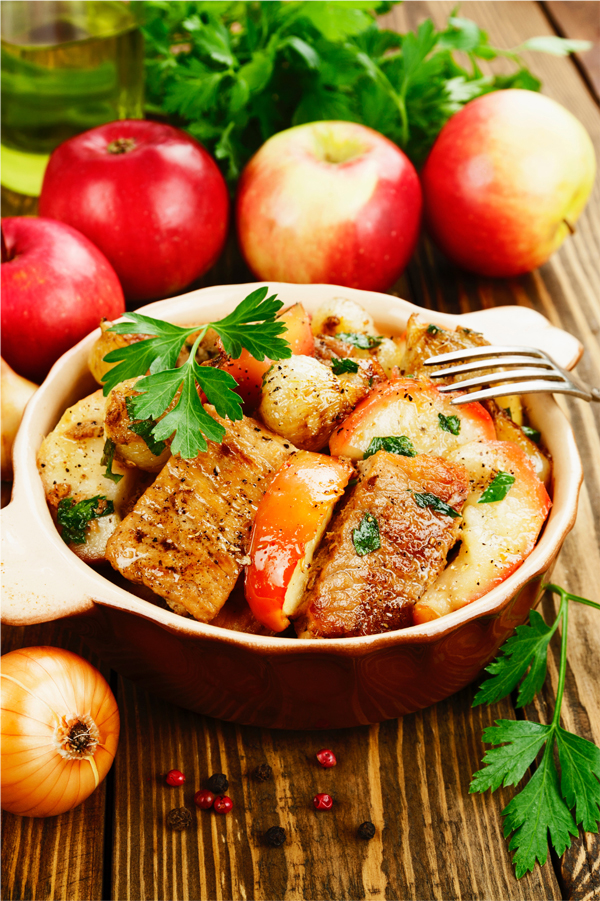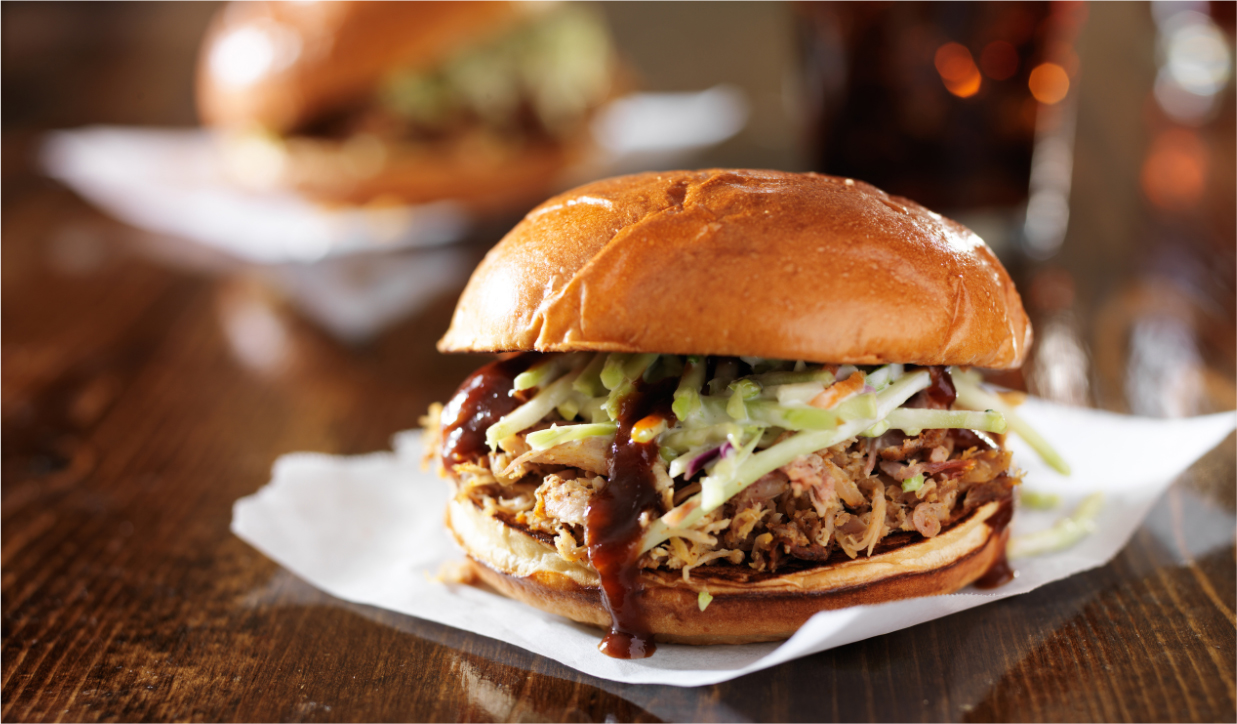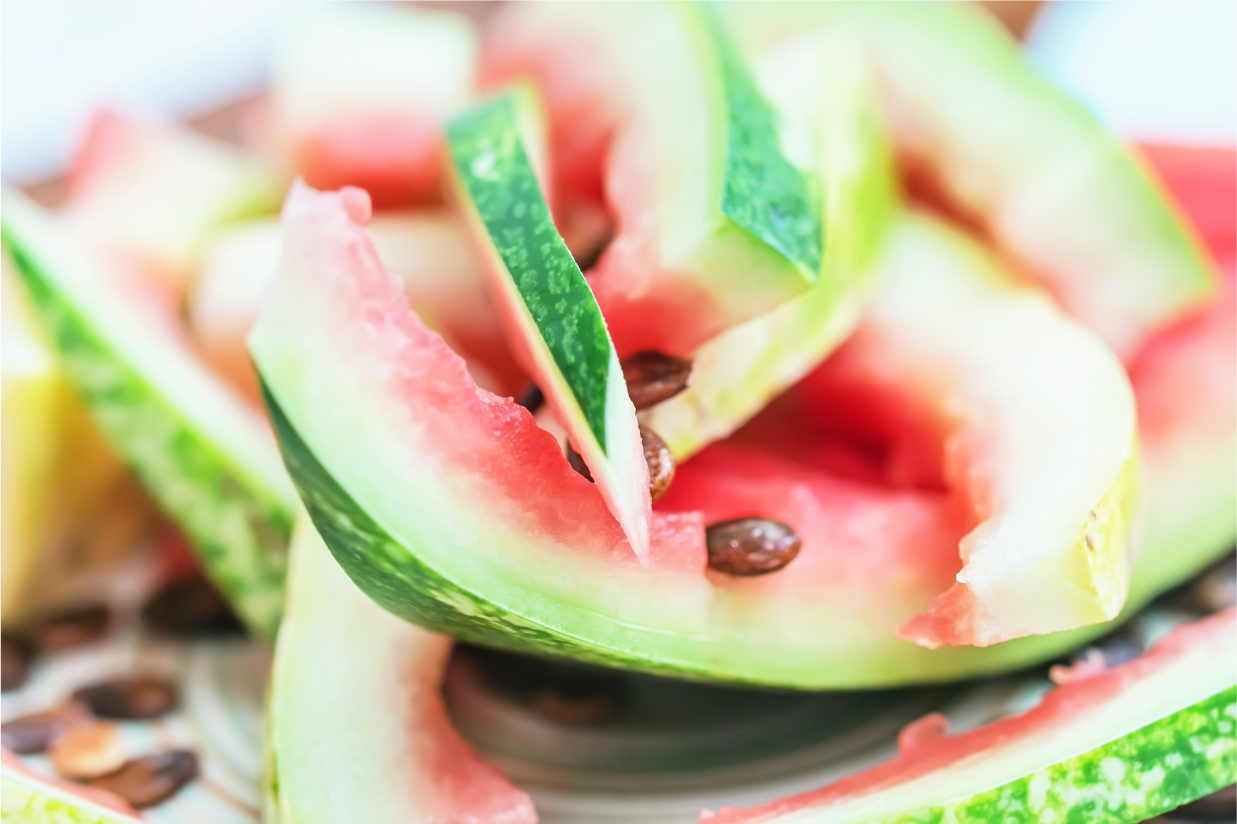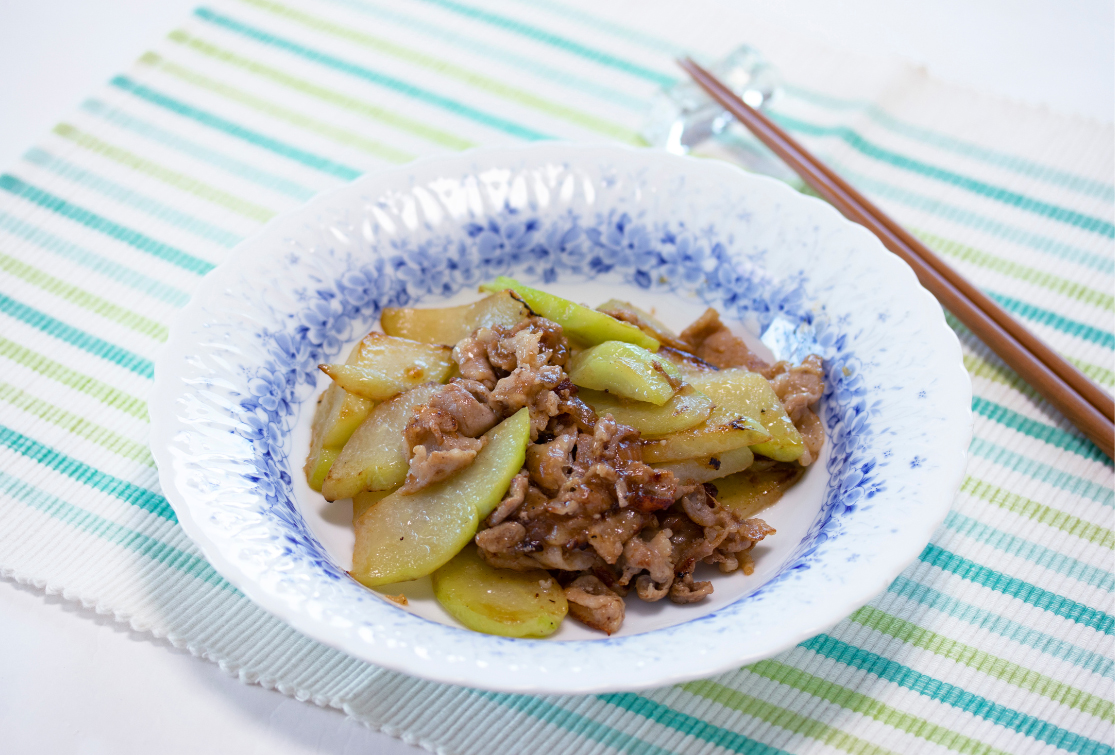
Pork and Fruit the Best of Two Vast Worlds
05 March 2024Learn the complex answer behind why pork and fruit complement each other.
By Lisa Parrish, GMC Editor
Feedback & comments: This email address is being protected from spambots. You need JavaScript enabled to view it.
 Things that repeat: history and pairings of delicious ingredients – throughout history. Just as Julius Caesar conquered much of Europe and countries continue to overthrow their neighbors, the earliest cooks discovered the complementary pairing of fruit and pork and still to this day, they are found side-by-side on the plate.
Things that repeat: history and pairings of delicious ingredients – throughout history. Just as Julius Caesar conquered much of Europe and countries continue to overthrow their neighbors, the earliest cooks discovered the complementary pairing of fruit and pork and still to this day, they are found side-by-side on the plate.
Marcus Gavius Apicius may have been the world's first documented foodie and discoverer of pork and apple stew. The Roman merchant lived in the first century A.D. and was widely regarded for his food conquests. It wasn’t until 400 years after his death, a scholar compiled many of his recipes which included "Minutal Matianum," a stew made from pork and apples. It also called for oil, leeks, coriander, pepper, cumin, mint, laser and vinegar. Catapult 2,000 years forward and pork chops and applesauce remain a staple on menu rotations.
A complex answer to a simple question
Why do fruit and pork complement each other? Pork is not a one-size-fits-all protein, in that some cuts are lean and mild in flavor while other cuts contain much fat and full flavor. It’s the difference between pork tenderloin and pork belly. And, of course, there are cuts in between the two extremes with varying textures and tastes.
Knowing the appropriate cut for the dish and proper cooking technique is imperative. In fact, a cook who understands beef cuts can now also wisely choose a pork cut. The National Pork Board and the Beef Checkoff have recently aligned their cut names. From Porterhouse chops to New York Pork Roast, the similarity in cuts will help determine the best pork cut and fruit for the dish. Click here for a infographic listing new pork cut names as well as the best cooking method, time and temperature for each cut.
Fruit is also a large category for many different flavors, textures and acidity and sweetness levels – as if a cook could utilize a plum and lemon in the same way. However, even with the varying degrees in each category, pork and fruit deliciously pair from lean loin and pears to pork shoulder and watermelon. The secret is in the vastness of each category and selecting the perfect cooking method, according to Rebecca Peizer, chef and owner of All Things Culinary, LLC. “Pork can be milder in flavor than other meats. But certain cuts are rich with flavor and fattiness and it pairs well with fruits from tropical to mild. It’s really the best of both worlds,” she said.
Chef Peizer acknowledged the pairing duo’s long history. “Throughout Europe during ancient Roman times, pork loin was stuffed with apples, dried prunes and raisins. It scented and flavored the meat from the inside out,” she said. Modern cooks should determine when to add the fruit to the pork dish, which means more than roasting the meat and fruit together for hours.
 “Tangy fruits such as mango and pineapple are great in a sauce used after cooking,” she suggested. “Fat carries flavor. Adding strong fruits early in the cooking process would be overpowering.” It is for this reason that fatty cuts like ham are better with a sauce or glaze on the side.
“Tangy fruits such as mango and pineapple are great in a sauce used after cooking,” she suggested. “Fat carries flavor. Adding strong fruits early in the cooking process would be overpowering.” It is for this reason that fatty cuts like ham are better with a sauce or glaze on the side.
Chef Peizer offered that for longer cooked meats which tend to be fattier, she would consider adding a pop of flavor with a food that compliments the dish. “I think the perfect pairing is barbeque pulled pork with watermelon rind slaw,” she said. The sweet, smoky and tangy pork and sauce make a rich base. Adding a fresh component to a long-cooked meat adds texture variation. Cold watermelon rind slaw is a carrier of acidic flavor that cuts through the barbecue sauce, tying the dish together in layers of flavor, texture and temperature.
“Watermelon has a distinct flavor people cannot mistake for something else. This one-of-a-kind taste perfectly pairs with pulled pork. Even if you didn’t add the barbecue sauce, the crunch and texture of the watermelon slaw is still perfect,” she said.
Another popular fruit that can be used in a complementary savory slaw to pulled pork is green mango. It could also be utilized in a salsa or glaze due to the intense flavor of the unripened or green state.
As the Romans discovered, long-roasting pork together with sweet and savory apples is flavorful and continues to this day. But what about taking a modern, fruit-forward twist on a pork roast? Chef Peizer suggests stewing fruits such as green mangos and chayote with vegetables for a pork roast variation.
 Chayote is a fruit native to Central America and was a staple of the Aztecs. European explorers discovered the squash and its cultivation spread throughout the Caribbean, South America and eventually onto India and Asia. “Chayote is like a hard zucchini and needs to be stewed longer,” Chef Peizer said. The green mango and chayote would act like winter vegetables in a pork-stewed dish.
Chayote is a fruit native to Central America and was a staple of the Aztecs. European explorers discovered the squash and its cultivation spread throughout the Caribbean, South America and eventually onto India and Asia. “Chayote is like a hard zucchini and needs to be stewed longer,” Chef Peizer said. The green mango and chayote would act like winter vegetables in a pork-stewed dish.
Chef Peizer’s favorite pork and fruit dish is a Philippine Adobo Style Pork Belly Stew. “To me, it is a summer and fall thing – the hot and cold contrast,” she said. The dish features small, deep-fried bits of pork belly with its crispy outside and soft center stewed in a sweet, sour and vinegary adobo sauce. Then add the crispiness of the watermelon slaw. “The flavors play off the palate as they heighten and explode. I just love it,” she said.
